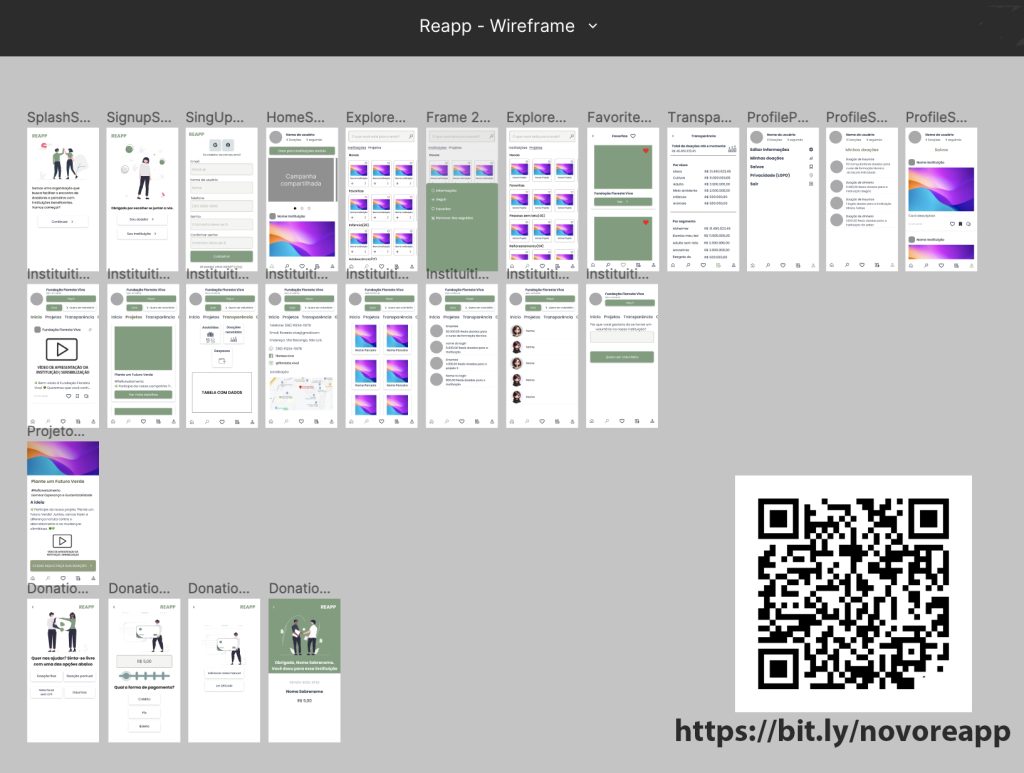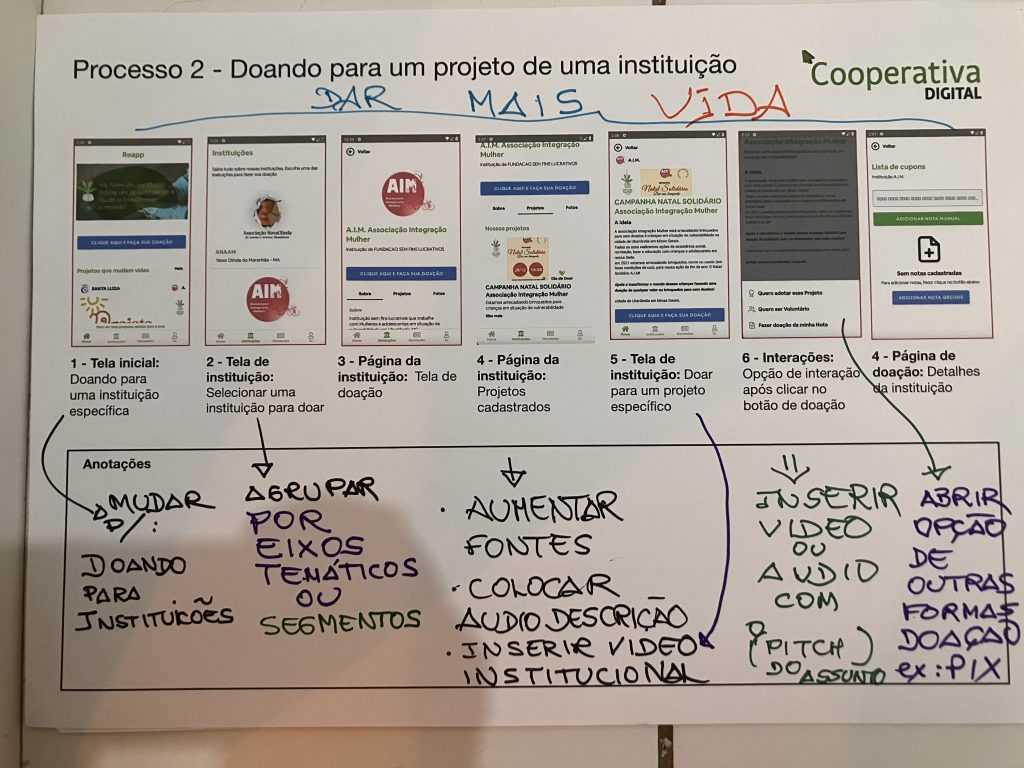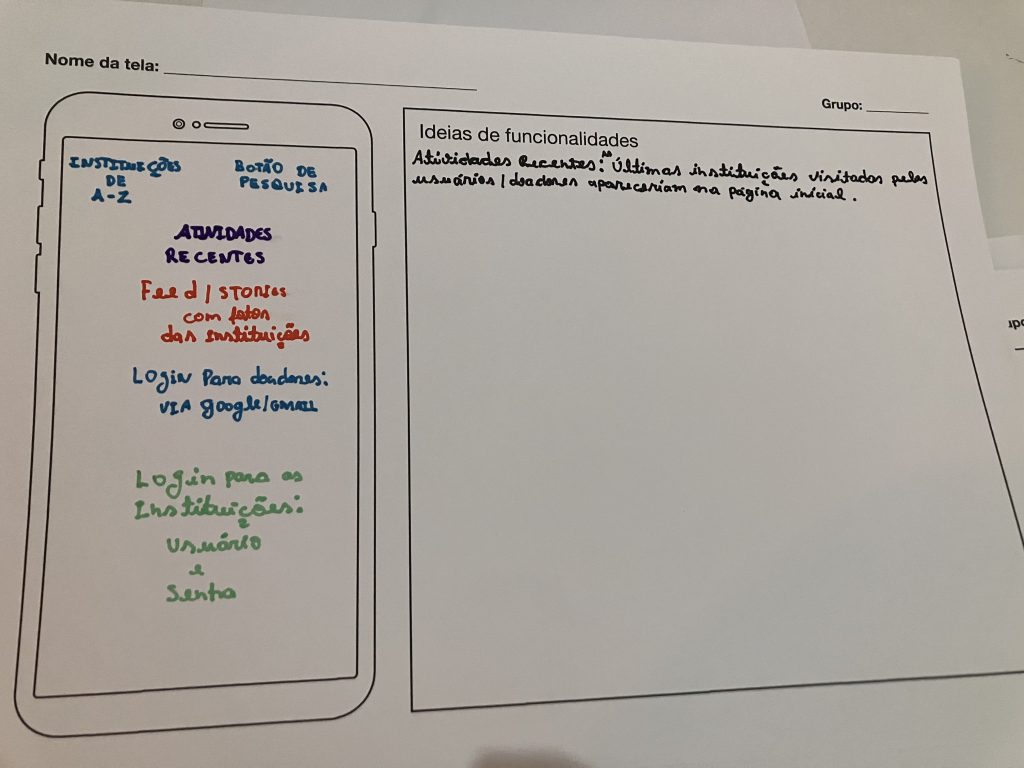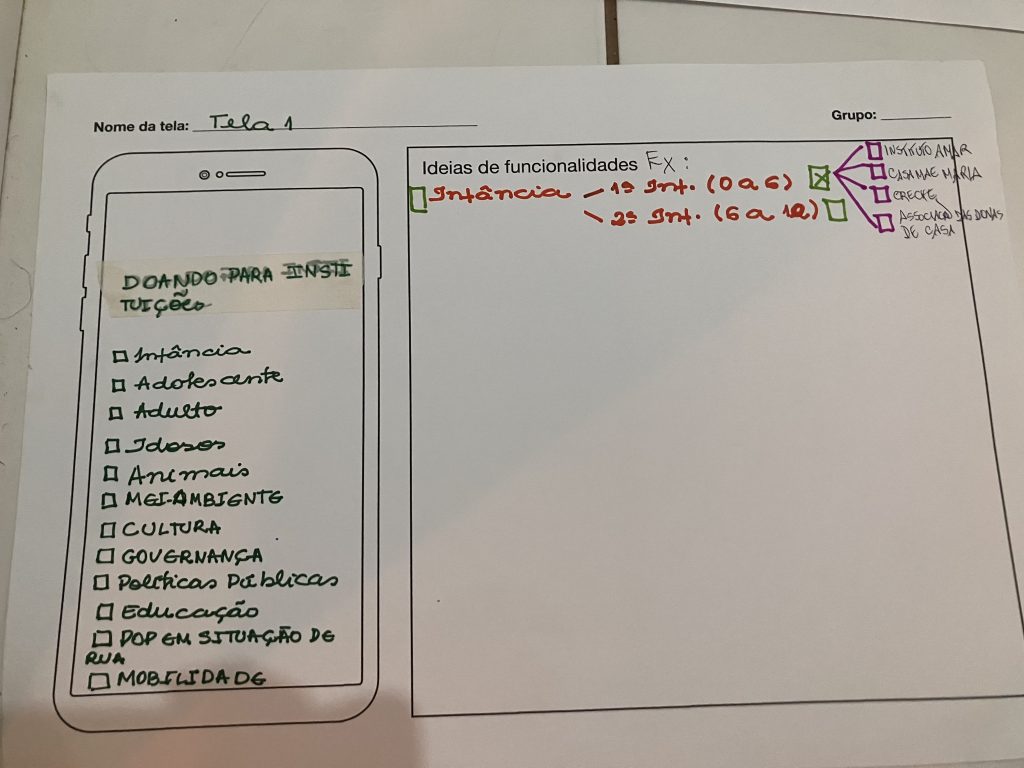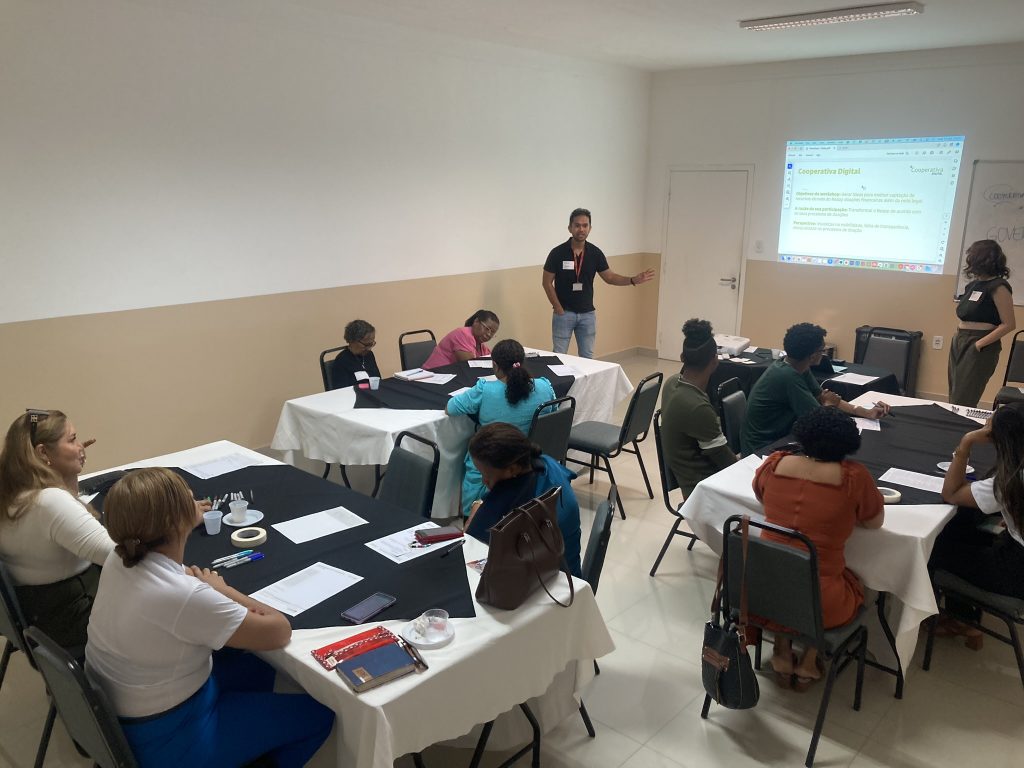Dr Rosendy Fernandez Galabo, Research Associate, Lancaster University ,Prof. Carlos de Salles Soares Neto, Federal University of Maranhão (UFMA), Brazil, Associate Professor, Justin Sacks, Research Associate – #Commonize Studio, Lancaster University, Prof. Paul Coulton (Mentor), Professor in Speculative & Game Design, Lancaster University, Jovemar Junior, Director of Reapp, Publicidade Jove, Marcella Abreu, Master’s in design student, Federal University of Maranhão, André Gabriel Gomes, Computer Science BSc student, Federal University of Maranhão, Gabriel Bastos, Computer Science BSc student, Federal University of Maranhão, Gabriel Belo, Computer Science BSc student, Federal University of Maranhão
What does a mobile app look like when it’s controlled by its users? ‘Cooperativa digital’ (digital cooperative) is a partnership between Lancaster University, Federal University of Maranhão, and Jove Publicidade (social enterprise) to evolve a private mobile app into a digital cooperative, a type of platform commons.
While most digital platforms are controlled by private for-profit companies, some digital platforms like Wikipedia are controlled by their contributing members. These types of digital platforms are part of a longstanding organisational approach called commons, specifically platform commons.
‘Cooperativa digital’ builds on a digital platform created by a Brazilian social enterprise that takes advantage of a local law that allows people to donate a portion of sales tax (i.e. VAT) to non-governmental organizations (NGOs). As a platform, the mobile app matches donors with NGOs. Now that the app is operational, the social enterprise wants to transfer control to the NGOs. To support this process, the partners are translating and transforming relevant concepts from commons scholarship into methods and tools that can be used in studio experiments with the community to create the rules for this platform commons.
The project asks: How can we transform commons scholarship into usable tools that support this community to create a digital platform commons? How does the community’s approach to discussing and creating greater equity inform understanding of the digital good?
